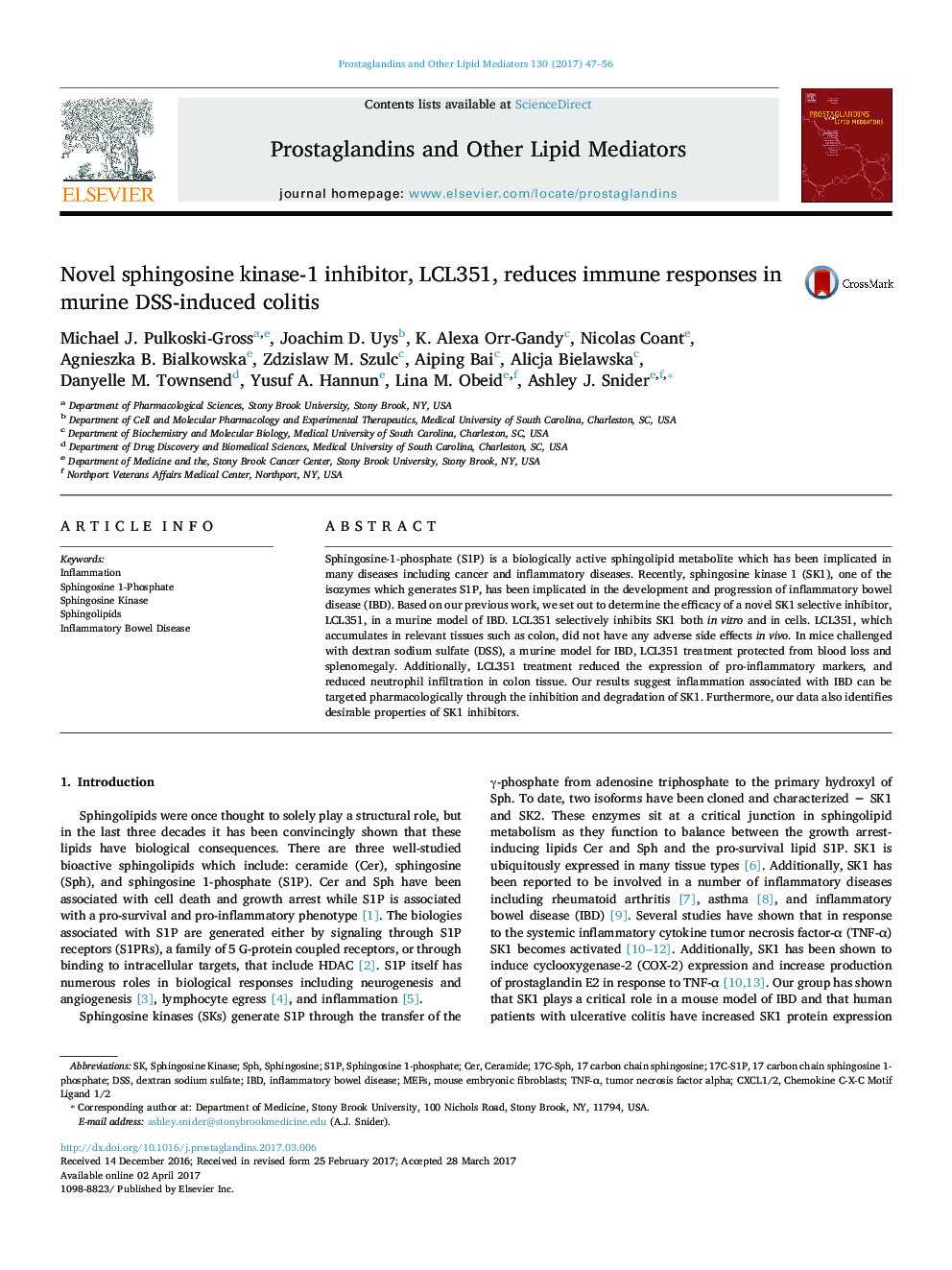| Article ID | Journal | Published Year | Pages | File Type |
|---|---|---|---|---|
| 5515918 | Prostaglandins & Other Lipid Mediators | 2017 | 10 Pages |
â¢Novel sphingosine analog, LCL351, inhibits SK1 in cells (10X more selective for SK1 over SK2 in vitro).â¢LCL351 treatment in vivo demonstrated protection from weight loss, blood loss, and splenomegaly in a mouse model of IBD.â¢LCL351 reduced induction of inflammatory cytokines and neutrophil infiltration in colon tissue in a mouse model of IBD.
Sphingosine-1-phosphate (S1P) is a biologically active sphingolipid metabolite which has been implicated in many diseases including cancer and inflammatory diseases. Recently, sphingosine kinase 1 (SK1), one of the isozymes which generates S1P, has been implicated in the development and progression of inflammatory bowel disease (IBD). Based on our previous work, we set out to determine the efficacy of a novel SK1 selective inhibitor, LCL351, in a murine model of IBD. LCL351 selectively inhibits SK1 both in vitro and in cells. LCL351, which accumulates in relevant tissues such as colon, did not have any adverse side effects in vivo. In mice challenged with dextran sodium sulfate (DSS), a murine model for IBD, LCL351 treatment protected from blood loss and splenomegaly. Additionally, LCL351 treatment reduced the expression of pro-inflammatory markers, and reduced neutrophil infiltration in colon tissue. Our results suggest inflammation associated with IBD can be targeted pharmacologically through the inhibition and degradation of SK1. Furthermore, our data also identifies desirable properties of SK1 inhibitors.
Graphical abstractDownload high-res image (82KB)Download full-size image
